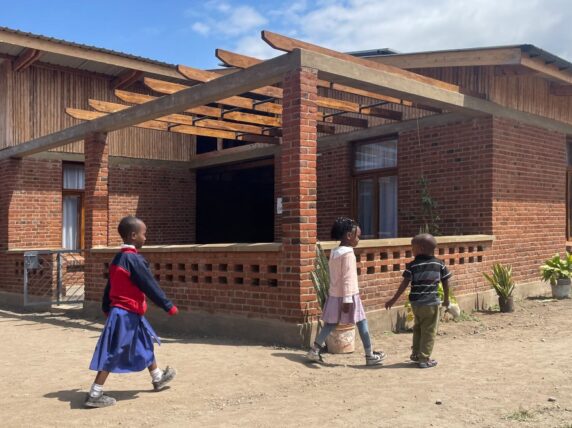PM pledges 0.7% aid spending must serve UK’s interests
Today, Theresa May announced that UK aid spending must align with the UK’s national interest and further private sector investment in Africa.
During her speech in Cape Town on the first day of a three-day visit to Africa, the prime minister made an “unashamed” pledge to maintain the UK’s 0.7% of GNI spending commitment, and said that development objectives must support the UK’s national security interests.
In what she described as a “fundamental shift” in aid and development policy, May committed the UK’s aid strategy to tying international development objectives to the UK’s wider national security interests.
“Trade and investment play an important role in helping the world’s poorest people out of poverty and during times of crisis. We would however be concerned if these efforts were weighted in favour of UK trade or UK private investors at the cost of helping the poorest, most vulnerable and marginalised people in the world,” said Claire Godfrey, head of policy and campaigns at Bond.
Subscribe to our newsletter
Our weekly email newsletter, Network News, is an indispensable weekly digest of the latest updates on funding, jobs, resources, news and learning opportunities in the international development sector.
Get Network NewsKey points from the prime minister’s speech
- By 2022, May wants the UK to be the G7’s number one investor in Africa, with the private sector taking the lead in investing across the continent.
- This investment will start with £4bn from the government, that “will pave the way for at least another £4bn of private sector financing.” £3.5bn of the government’s investment will come from the CDC Group, the UK’s development finance institution owned by the government and governed at arms-length by the Department for International Development (DFID).
- The UK will remain a global champion of aid, humanitarian and development spending. The UK will continue to spend 0.7% of GNI on official development assistance (ODA) and will deliver the SDGs.
- Development assistance will be used to tackle security issues that threaten development, including helping fast-growing frontier markets like Ivory Coast and Senegal. The UK will invest in countries such as Mali, Chad and Niger, who are fighting terrorism in the Sahel, as well continuing to work with Jordan, which faces threats from Daesh.
- Aid funding will be used to fight illicit finance and organised crime by deploying expertise in financial centres around the world and increasing the UK’s work with law enforcement to return the billions of dollars stolen from countries in Africa and beyond.
- Aid will be used to fight illegal migration, modern slavery, and people trafficking.
- May said that these “new priorities will represent a fundamental strategic shift in the way we use our aid programme, putting development at the heart of our international agenda – not only protecting and supporting the most vulnerable people but bolstering states under threat, shaping a global economy that works for everyone, and building co-operation across the world in support of the rules-based system.”
We must focus on development
“The UK government should focus its efforts on tackling the root causes of poverty, climate change and conflict, as well as creating decent jobs and secure livelihoods. This means addressing the barriers that risk the most vulnerable, such as women, youth and people with disabilities, being left behind. We should all support the type of economic development that tackles inequality, helps people out of poverty and is environmentally sustainable,” says Godfrey.
Get the latest news and views on international development politics and advocacy by signing up to our weekly newsletter.
Category
News & Views



